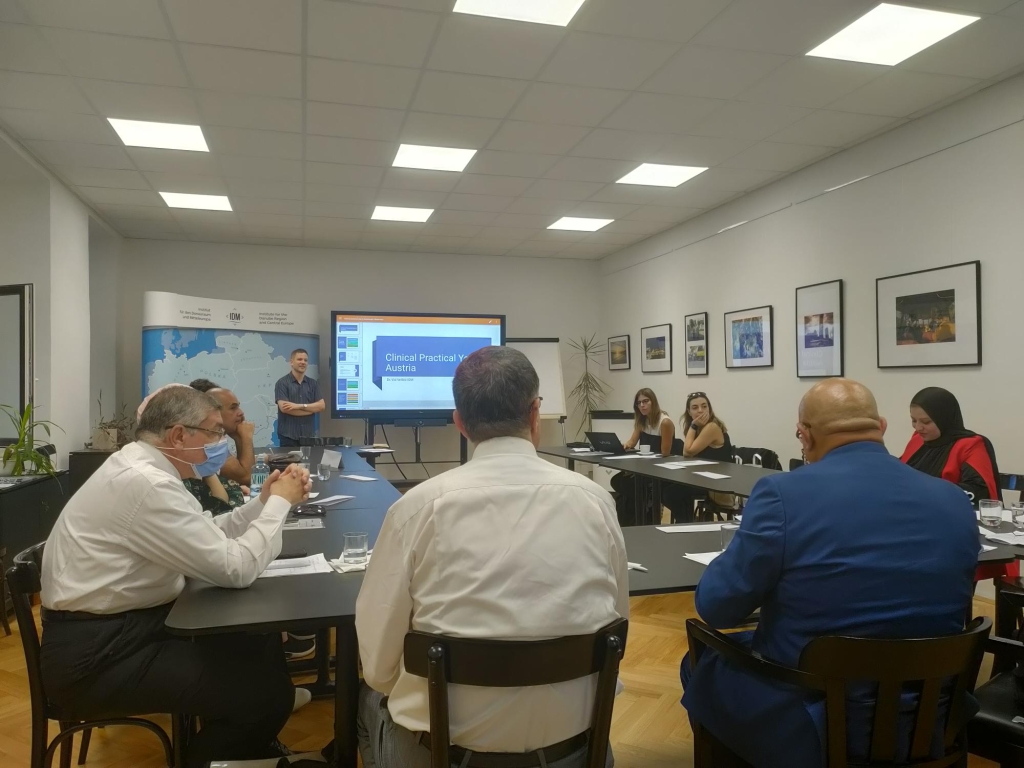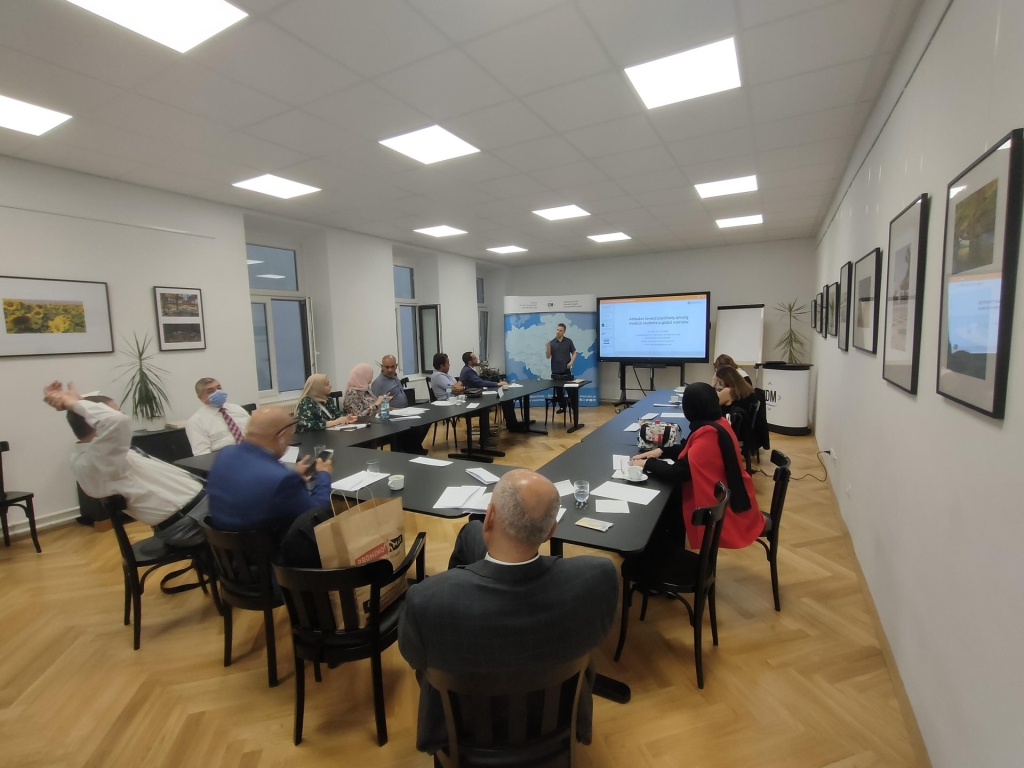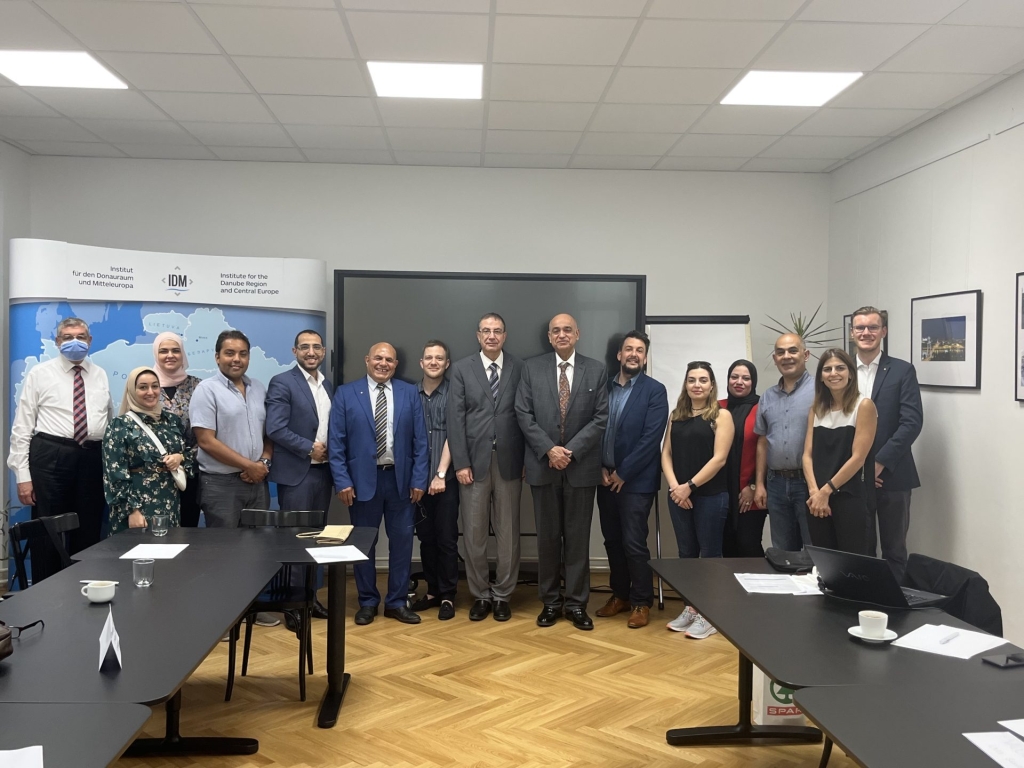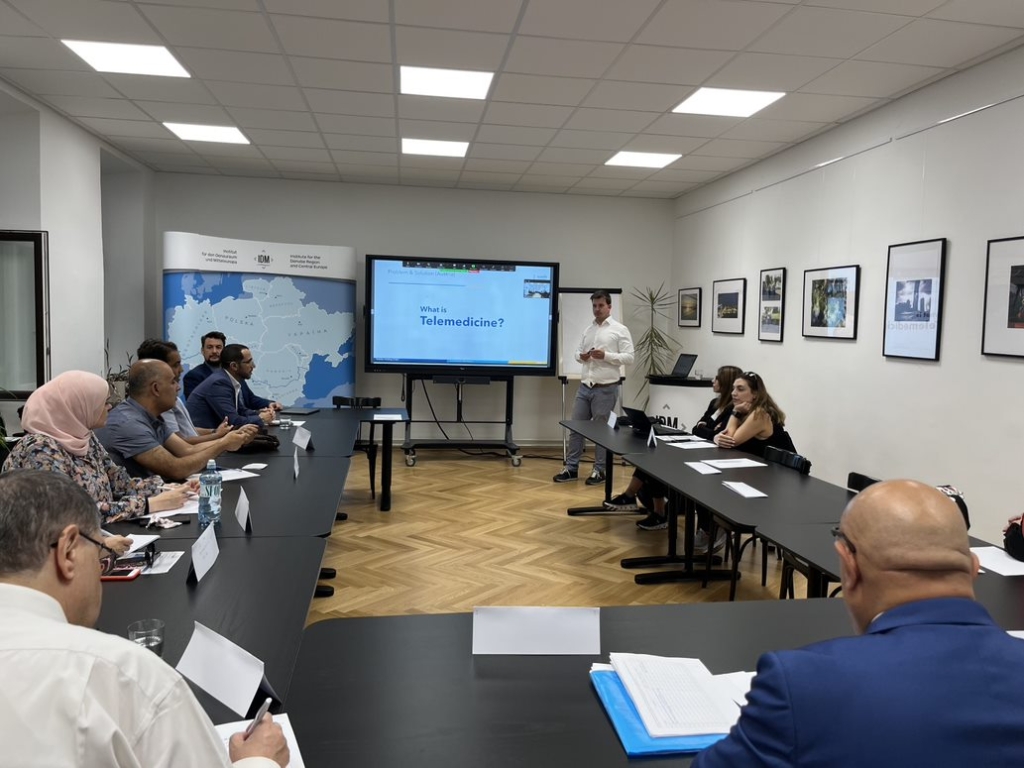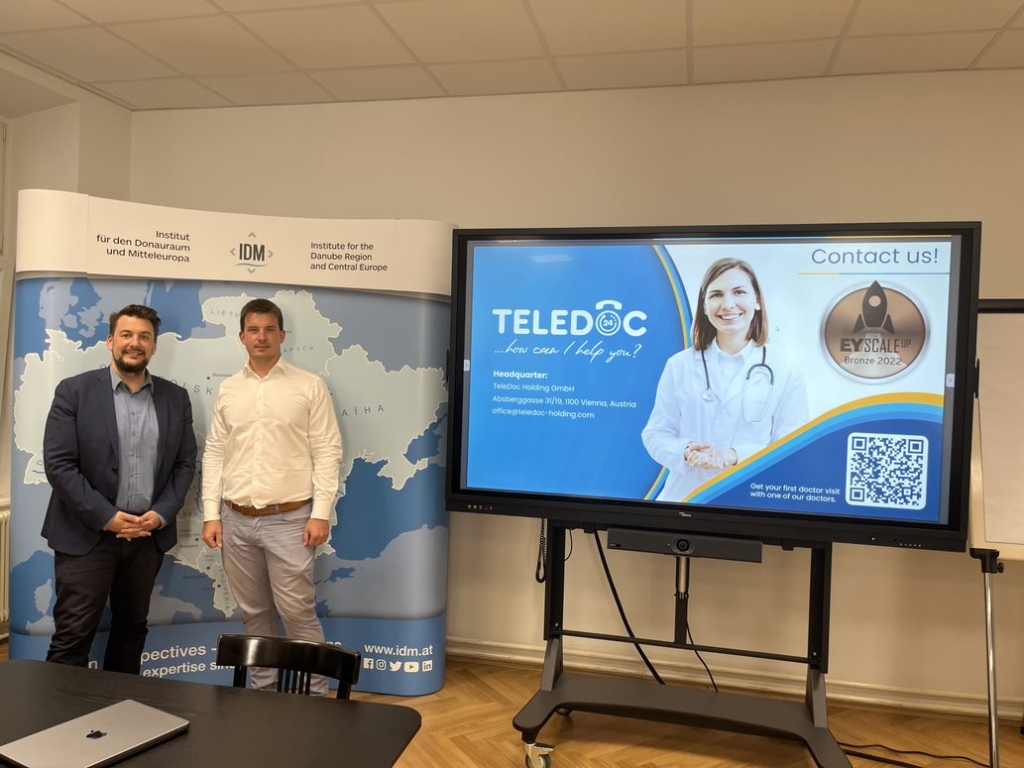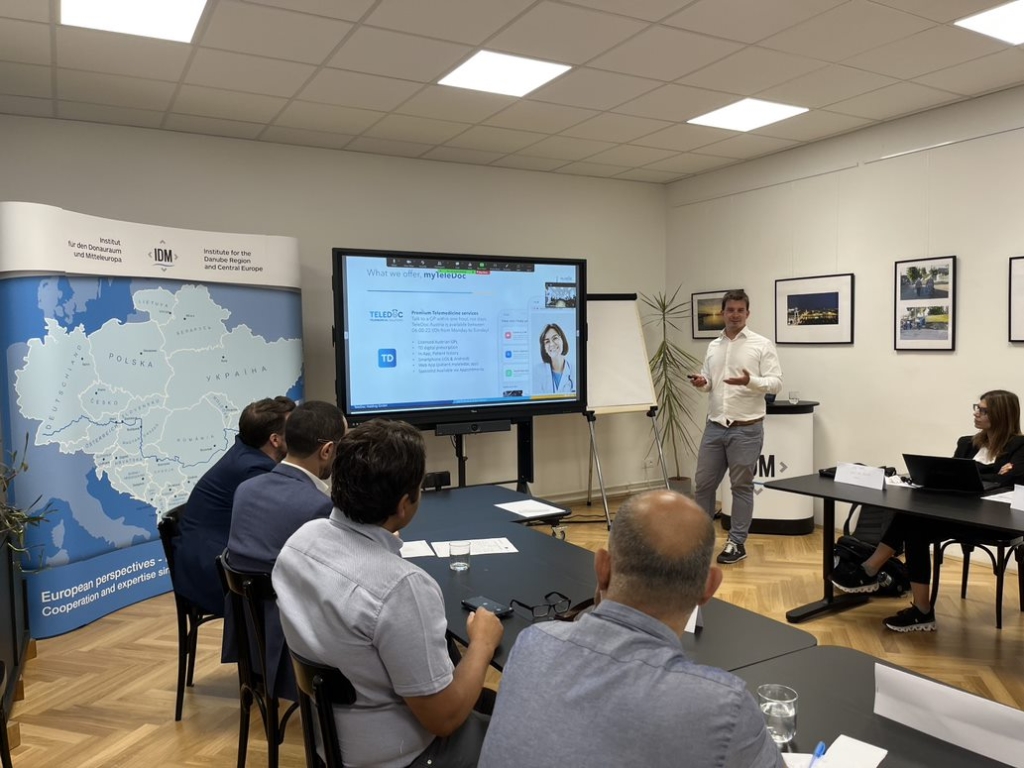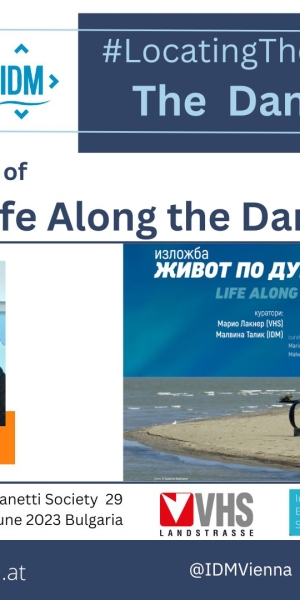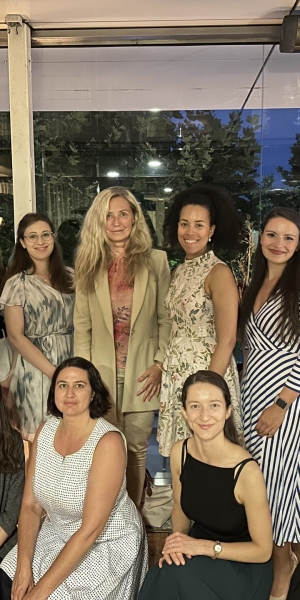Second ICU/ICARE Project Meeting in Vienna: Sharing Experiences in AI, E-Health, and Telemedicine
From 5 to 9 July, the Institute for the Danube Region and Central Europe hosted the second meeting of the ICU and also the ICARE project funded by the Erasmus+ programme. The goal of this project is to implement new tools and technologies, skills, innovative trainin g for students and teaching methods for active university-healthcare sector collaboration in primary healthcare.
The meeting, organised by Prof. Dr. Mosad Zineldin from Linnaeus University (Sweden), was attended by the IDM team and a delegation of healthcare professionals from Lebanon and Egypt, who are all partners of the ICU/ICARE project.
On Thursday, Sebastian Schäffer, Director of the IDM, welcomed participants at Hahngasse and introduced them to the work of the institute. Following that, Prof. Dr. Mosad Zineldin, Grant holder at Linnaeus University, initiated the management meeting by discussing the project’s progress. Dr. Sabbi Abou followed with a presentation of a progress report, shedding light on the positive outcomes achieved in clinics’ centres. During the meeting, doctors engaged in discussions regarding various project-related events, including the visit to Azhar University in Cairo in September 2022 and the recent visit to Vienna in October 2022. E-health and AI in the medical and health sectors were also topics of concern, particularly the integration of professional training with health infrastructure development.
Dr. Jessy El Hayek presented an overview of the project’s activities since its inception, which encompassed visits to healthcare facilities, equipment procurement, and the organization of capacity-building workshops for professionals utilizing AI and e-health applications. The Center of E-health Innovation (CeHi) is scheduled to launch in September and October 2023, covering various topics such as research, development, education, centre policymaking and strategic planning. The Artificial Intelligence Applications in Healthcare Workshop will last for two days and will examine the basics of AI, how it is being used in healthcare and its ethical and regulatory considerations. Dr. Ahmad Makhlouf discussed objective proposals, including surveys conducted among healthcare students, the establishment of a primary healthcare centre for student training, and support for the Egyptian National Compulsory Medical Internship. He also presented the Study Guide. Subsequently, there were discussions about the overall direction of the projects.
On Friday, the day started with an insightful presentation of the Viennese telemedicine start-up TeleDoc by Florian Brandstetter, CEO. Mr. Brandstetter presented TeleDoc, an app and a web platform offering online teleconsultations with trained doctors in Austria and other countries of Central Europe. The presentation triggered many insightful exchanges between the speaker and the public, who shared about the development of telemedicine in their countries. Mr. Brandstetter mentioned how telemedicine is a reliable answer to some of today’s societal challenges, i.g. lack of doctors in rural areas and ageing population. Participants also mentioned some challenges that could be associated with telemedicine, such as national laws and private data protection. The speaker assured that the main objective of TeleDoc was to work in collaboration with doctors. was to work in collaboration with doctors.
Then, participants split up into several groups of 3 or 4 to brainstorm collectively on the SRPCC curriculum for medicine students.
In the afternoon, Dr. Vid Velikić presented in detail the curriculum followed by medicine students in Austria, from the entry exam to the final practical year. This was again the occasion for participants to share experiences from their own university systems, noticing similarities and differences in medical curricula.
Finally, the participants share their group work done earlier on the SRPCC curriculum. Many topics were discussed for the draft of the curriculum, including the role of the student’s supervisors and tasks to be done by students during their practical training in the hospital.
Overall, this meeting was a great opportunity for all participants to discover more about innovations in the Austrian medical training system and to network and brainstorm about best practices to replicate within the ICU ICARE project. The IDM team thanks the coordinator Prof. Dr. Mosad Zineldin and the rest of the participants for this fruitful meeting and hope they enjoyed their stay in Vienna.
Authors: Jade Penancier & Lucas Décorne

